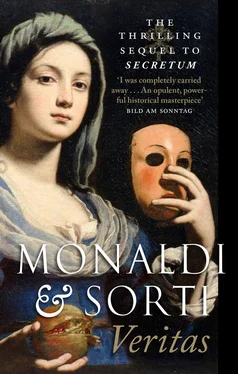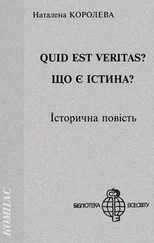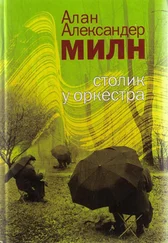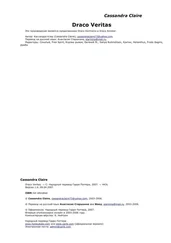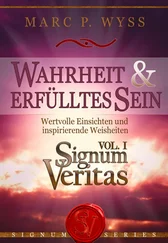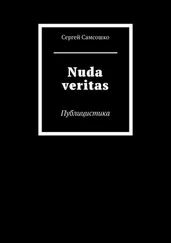Rita Monaldi - Veritas
Здесь есть возможность читать онлайн «Rita Monaldi - Veritas» весь текст электронной книги совершенно бесплатно (целиком полную версию без сокращений). В некоторых случаях можно слушать аудио, скачать через торрент в формате fb2 и присутствует краткое содержание. Жанр: Исторический детектив, на английском языке. Описание произведения, (предисловие) а так же отзывы посетителей доступны на портале библиотеки ЛибКат.
- Название:Veritas
- Автор:
- Жанр:
- Год:неизвестен
- ISBN:нет данных
- Рейтинг книги:3 / 5. Голосов: 1
-
Избранное:Добавить в избранное
- Отзывы:
-
Ваша оценка:
- 60
- 1
- 2
- 3
- 4
- 5
Veritas: краткое содержание, описание и аннотация
Предлагаем к чтению аннотацию, описание, краткое содержание или предисловие (зависит от того, что написал сам автор книги «Veritas»). Если вы не нашли необходимую информацию о книге — напишите в комментариях, мы постараемся отыскать её.
Veritas — читать онлайн бесплатно полную книгу (весь текст) целиком
Ниже представлен текст книги, разбитый по страницам. Система сохранения места последней прочитанной страницы, позволяет с удобством читать онлайн бесплатно книгу «Veritas», без необходимости каждый раз заново искать на чём Вы остановились. Поставьте закладку, и сможете в любой момент перейти на страницу, на которой закончили чтение.
Интервал:
Закладка:
The name of the Caesarean Proto-Medicus Von Hertod is confirmed in the above-cited Umständliche Beschreibung , which faithfully reports every detail on the death of Joseph and on the long funeral ceremony.
For the funeral apparatus described at the beginning, everything is taken from Apparatus Funebris quem JOSEPHI I. Gloriosissim. Memoriae . ., Vienna 1711.
The enemies of Joseph I did indeed include the Jesuits, as Atto Melani claims. The account of the expulsion of the Jesuit Wiedemann by the young emperor, as given by the chimney-sweep on the third day while looking through his collection of writings on Joseph, is authentic (cf. Eduard Winter, Frühaufklärung , East Berlin 1966, p. 177). None of the panegyrics and the gazettes mentioned by the chimney-sweep are invented: every reader familiar with the history of the periodical press will have recognised the famous Englischer Wahrsager (“The English Fortune-Teller”), the calendar whose fatal prophecy for 1711 is reported by the chimney-sweep.
The story of the sun rising with a bloody tinge is not an invention either: it is reported by Count Sigmund Friedrich Khevenhüller-Metsch, reproduced in the diary of Prince Johann Josef Khevenhüller-Metsch: Aus der Zeit Maria Theresias. Tagebuch 1742–1776 , Vienna-Leipzig 1907, p. 71):
This grievous death was not only foreseen by the English Fortune-Teller in his calendar, but was also pre-announced by the Sun itself, which for some days began to rise with a blood-red colour .
This strange phenomenon is very similar to something that happened in Russia in 1936, a circumstance recalled at the beginning of the 1994 film Burned by the Sun , by the Russian director Nikita Mikhalkov, about one of the Stalinist purges.
As the chimney-sweep recounts, after foretelling the death of Joseph, the Englischer Wahrsager seems to have sold in great quantities: judging by the copies still preserved today, up until the end of the eighteenth century it enjoyed a far wider circulation than the other almanacs of the time.
The story Atto Melani narrates of the proposed kidnapping of Joseph is also true. The traitor Raueskoet made the suggestion to Louis XIV, who rejected it (cf. Charles W. Ingrao, Josef I., der “vergessene Kaiser” , Graz-Vienna-Cologne, 1982, p. 243 n.98, and Philipp Röder von Diersburg, Freiherr, Kriegs und Staatsschriften des Markgrafen Ludwig Wilhelm von Baden über den spanischen Erbfolgekrieg aus den Archiven von Karlsruhe, Wien und Paris , Karlsruhe 1850, vol. 3 p. 97).
The Censored Biography and the Secrets of Charles
Eugene’s envy, Charles’s rivalry: why has no historian ever investigated the hostility that surrounded Joseph the Victorious? Did the glory he gained in Landau cost him dear, as Atto Melani suggests to his friend the chimney-sweep?
According to Susanne and Theophil Antonicek ( Drei Dokumente zu Musik und Theater unter Kaiser Joseph I in “Festschrift Othmar Wessely zum 60. Geburtstag”, Tutzing 1966, p. 11–12), when Joseph was alive a sort of underground war over music developed between the young emperor and his brother (and consequently also among their counsellors): Charles accused his brother, quite openly, of wastefulness. After Joseph’s death, the superindendent of music Scipione Publicola di Santa Croce was ordered to present the accounts of his directorship, and many of the deceased emperor’s favourites (including Santa Croce himself) were dismissed, but once the purge had been effected Charles’s regime of austerity softened rapidly, and the golden period of court music that Joseph had inaugurated continued as before.
There had always been jealousy and quarrels between the two brothers. Joseph was probaby surrounded by other hostile and secretly malevolent individuals. There should have been a historian to recount his great victories at Landau, illuminating the prestige that the young emperor achieved there, and the secret malice that it had unleashed among those present. A work of this sort would perhaps have prevented Joseph from being condemned to oblivion.
Well, in fact such a work was written, and it is of monumental proportions, consisting of twelve large manuscript volumes. Fate — or rather Emperor Charles VI, Joseph’s brother — decreed that it should remain in manuscript form buried deep in an archive, unknown to everyone. Re-examining the affair, as we have done, helps to reveal how the threads of history, fastened in remote ages, can remain taut and tense until the present day.
The time and place were Vienna in the spring of 1738. Twenty-seven years had elapsed since Joseph’s death, and two since the death of Eugene of Savoy. On the imperial throne sat Charles, Joseph’s brother. A learned man of letters, Gottfried Philipp Spannagel, wrote a series of pressing letters to a noblewoman, the Countess of Clenck (National Library of Vienna, Handschriftensammlung, manuscript Codex 8434). Spannagel was one of the superintendents of the imperial library, a post that he had obtained thanks to his great erudition in matters of law, genealogy and history. He had spent several years in Italy and wrote fluently not only in Latin, German and French, but also in Italian. Eleven years earlier, in 1727, he had obtained the post of court historian, and then that of custodian of the imperial library. In addition, Spannagel had also held a very sensitive appointment: for two years he had given history lessons to Archduchess Maria Theresa, Charles’s daughter. It was she who, thanks to the Pragmatic Sanction mentioned by the chimney-sweep, was to succeed to her father’s throne, trampling over the natural rights of Joseph’s daughters. Gifted with greater virtues than her father, Maria Theresa was to become known to history as the great reformer of the Austrian monarchy. Spannagel, the learned scholar and preceptor of the imperial family, wrote to the Countess of Clenck to arrange a meeting with Charles: the Countess apparently had excellent relations both with the Emperor and his consort. Spannagel was concluding an impressive historical work in twelve books, which he wished to bring to the Emperor’s attention. The work was written in Italian, the language his protagonist had been so fond of. The title was Della vita e del regno di Josefo il vittorioso, Re et Imperadore dei Romani, Re di Ungheria e di Boemia e Arciduca d’Austria ( Of the Life and Reign of Joseph the Victorious, King and Emperor of the Romans, King of Hungary and of Bohemia and Archduke of Austria ; National Library of Vienna, Handschriften Sammlung Codex 8431–8435 e 7713–7722). It was the first biography of Joseph in which full light was thrown on his heroic deeds, within the great historic framework of the years ranging from his boyhood to his death. In order to publish it Spannagel needed not only permission but also material support from the imperial crown. He therefore repeatedly asked the Countess of Clenck to arrange a meeting with Charles, or at least a recommendation to his consort. But after a whole year, in spring 1739, the librarian was still waiting for some sign of agreement from on high, indispensable for the publication of his lengthy work. We have just a short note from the Countess in which, in addition to vague reassurances, the lady fixed an appointment with Spannagel to inform him of the answer he had so long been waiting for. What this answer was, we learn from subsequent events.
Della vita e del regno di Josefo il vittorioso is the moving testimony of a sincere admirer of Joseph I, who, in the correspondence attached to the work (Codex 8434, paper 272 ff.), several times calls Joseph “my hero”. Without falling into mere apologia, Spannagel’s biography offers a lively and full-blooded portrait of its subject, and highlights his intellectual, moral and military virtues. Three episodes are studied with particular attention: the victories in the two sieges of Landau of 1702 and 1704, and the failed participation in the 1703 campaign, in which the Bavarian fortress was reconquered by the French, exactly as recounted by Atto Melani.
Читать дальшеИнтервал:
Закладка:
Похожие книги на «Veritas»
Представляем Вашему вниманию похожие книги на «Veritas» списком для выбора. Мы отобрали схожую по названию и смыслу литературу в надежде предоставить читателям больше вариантов отыскать новые, интересные, ещё непрочитанные произведения.
Обсуждение, отзывы о книге «Veritas» и просто собственные мнения читателей. Оставьте ваши комментарии, напишите, что Вы думаете о произведении, его смысле или главных героях. Укажите что конкретно понравилось, а что нет, и почему Вы так считаете.
